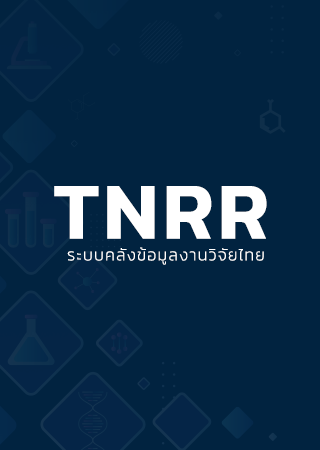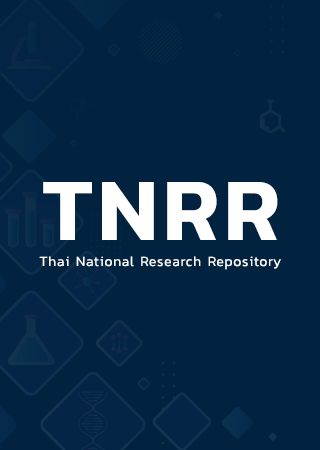Description
ด้วยสถานการณ์การแพร่ระบาดของโรคติดเชื้อไวรัสโคโรนา 2019 (COVID-19) ได้ก่อให้เกิดปัญหาทางด้านการแพทย์และสาธารณสุขเป็นอย่างมาก อันมีสาเหตุจากการควบคุมและป้องกันทำได้ค่อนข้างยาก เชื้อโรคจึงมีโอกาสแพร่ระบาดอย่างกว้างขวาง การบำบัดมูลฝอยติดเชื้อที่แหล่งกำเนิด จึงเป็นสิ่งสำคัญและจำเป็นต้องพิจารณาเพื่อป้องกันอันตรายหรือผลกระทบต่อสุขภาพอนามัยและสิ่งแวดล้อม โซเดียมไฮโปคลอไรท์ซึ่งเป็นน้ำยาฆ่าเชื้อที่มีคลอรีนเป็นองค์ประกอบถูกใช้อย่างมากสำหรับฆ่าเชื้อบนพื้นผิวในโรงพยาบาล แต่อย่างไรก็ตามสารเคมีชนิดนี้มีฤทธิ์ระคายเคืองต่อเนื้อเยื่อที่สัมผัส และมีส่วนทำให้เชื้อก่อโรคเกิดการดื้อยาได้ งานวิจัยนี้มุ่งเน้นพัฒนาเครื่องผลิตน้ำยาฆ่าเชื้ออิเล็กโทรไลต์ที่มีคลอรีนเป็นองค์ประกอบสำหรับใช้ภายในสถานประกอบการด้านสาธารณสุข ปัจจัยที่มีผลต่อการผลิตน้ำยาฆ่าเชื้ออิเล็กโทรไลต์ และประสิทธิภาพการฆ่าเชื้อแบคทีเรียและไวรัส (โดยเฉพาะอย่างยิ่ง SARS-CoV-2) ถูกทดสอบภายใต้สภาวะควบคุมในห้องปฏิบัติการ รวมถึงทดสอบประสิทธิภาพการทำงานของชุดอุปกรณ์ต้นแบบภายใต้สภาวะใช้งานจริง เพื่อนำไปสู่การจัดสร้างชุดผลิตน้ำยาฆ่าเชื้ออิเล็กโทรไลต์ที่มีความพร้อมเหมาะสมต่อการใช้งานของกลุ่มเป้าหมายมากที่สุด การเพิ่มความหนาแน่นกระแสไฟฟ้าและความเข้มข้นคลอรีนมีส่วนสำคัญต่อการเพิ่มปริมาณคลอรีนและประสิทธิภาพการใช้ไฟฟ้า (46.4-61.5 ppm คลอรีน/วัตต์) ชุดอิเล็กโทรไลซิสแบบการไหลที่มีการใช้เยื่อแผ่นเลือกผ่านสามารถผลิตน้ำยาอิเล็กโทรไลต์ในระดับคลอรีนสูง อย่างไรก็ตามการใช้งาน ชุดอิเล็กโทรไลซิสแบบการไหลชุดที่ 2 ซึ่งปราศจากการใช้เยื่อแผ่นเลือกผ่าน ยังคงเป็นสิ่งจำเป็นในการปรับระดับ pH ของของเหลวที่ได้จากฝั่งแอโนดให้ได้ระดับที่ต้องการ ต้นแบบเครื่องผลิตน้ำยาฆ่าเชื้อ อิเล็กโทรไลต์ หรือที่เรียกว่า ENcase สามารถใช้งานได้หลายรอบด้วยอัตราการผลิต 15 ลิตรต่อชั่วโมง ผลิตภัณฑ์น้ำยาฆ่าเชื้ออิเล็กโทรไลต์ที่ได้จากเครื่องต้นแบบ เรียกว่า ENERclean ประกอบด้วยกรดไฮโปคลอรัส (Hypochlorous acid, HOCl) เป็นองค์ประกอบหลัก pH (4-6.5) ORP (>800 mV) และปริมาณคลอรีน (400-500 ppm) ผลิตภัณฑ์ ENERclean มีฤทธิ์ในการฆ่าเชื้อแบคทีเรียและเชื้อรา ผ่านตามเกณฑ์มาตรฐานทดสอบผลิตภัณฑ์ฆ่าเชื้อก่อโรค (อย่างน้อย 59 จาก 60 carrier) ตามประกาศสำนักงานคณะกรรมการอาหารและยา อีกทั้งมีฤทธิ์ในการฆ่าเชื้อไวรัสก่อโรค เช่น Dengue virus, Japanese encephalitis virus, Zika virus และโดยเฉพาะอย่างยิ่ง SARS-CoV-2 โดยมีประสิทธิภาพในการฆ่าเชื้อ SARS-CoV-2 บนพื้นผิวได้มากกว่า 99.9% ตามมาตรฐานทดสอบ ASTM E1053-20 ปัจจุบันต้นแบบเครื่อง ENcase ได้ถูกติดตั้งและใช้ประโยชน์แล้วในโรงพยาบาล 10 แห่ง หลายภูมิภาค เช่น ภาคใต้ ภาคกลาง และภาคตะวันออกเฉียงเหนือตอนล่าง<br><br>During the on-going COVID-19 outbreak, causing many medical and public health problems resulting from quite difficult control and prevention, infection has a chance to spread widely. Treatment of infectious waste at the source is crucial and needs to be considered to prevent hazards or impacts on health and the environment. Sodium hypochlorite is widely used as a chlorine-based disinfectant on the surface of various appliances used in hospitals, however, its irritating effects on the human tissues and associated antimicrobial resistance. This research focuses on the production of a prototype set of synthetic chlorine-based electrolyte water solutions for used to disinfect in public health establishments. The influence of variables on the synthesis of electrolyte water solutions and the efficiency of disinfection of viruses (especially SARS-CoV-2) and bacteria from electrolyzed water disinfectant are evaluated under controlled condition in the laboratory. Including testing the performance of the prototype set under actual usage conditions in order to design the electrolyzed water disinfectant set that is the most suitable for the use of the target group. Enhancing current density and chlorine concentration resulted in increasing chlorine content and electric efficiency (46.4-61.5 ppm/watt). The high concentration production of available chlorine can be achieved using a flow-type electrolysis device with a membrane separator. The 2nd flow-type electrolysis device without a membrane separator needs to adjusted pH of an anolyte liquid within a desired range. ENcase, a prototype set of synthetic chlorine-based disinfectant, displayed on the re-usability over repeated cycles with the production rate of 15 litres per hours. The main composition of ENERclean product obtained from ENcase are hypochlorous acid (HOCl) with a pH (4-6.5), ORP (> 800 mV) and chlorine content (400-500 ppm). ENERclean achieved the bactericidal and fungicidal efficacy criterion (at least 59 from 60 carrier reduction) for evaluating chemical disinfectants, categorized by the Thai Food & Drug Administration (Thai FDA). It is efficient in virucidal e.g., Dengue virus, Japanese encephalitis virus, Zika virus and especially SARS-CoV-2. It achieved more than 99.9% reduction of SARS-CoV-2 on nonporous environmental surfaces according to standard test method ASTM E1053-20. Currently, ENcase has already been setup and utilized on 10 hospitals in various regions, inducing the South, the Central, and the Lower Northeastern Region.
Date of Publication :
02/2023
Publisher :
สำนักงานการวิจัยแห่งชาติ (วช.)
Category :
รายงานการวิจัย
Total page :
77012 pages
People Who Read This Also Read


